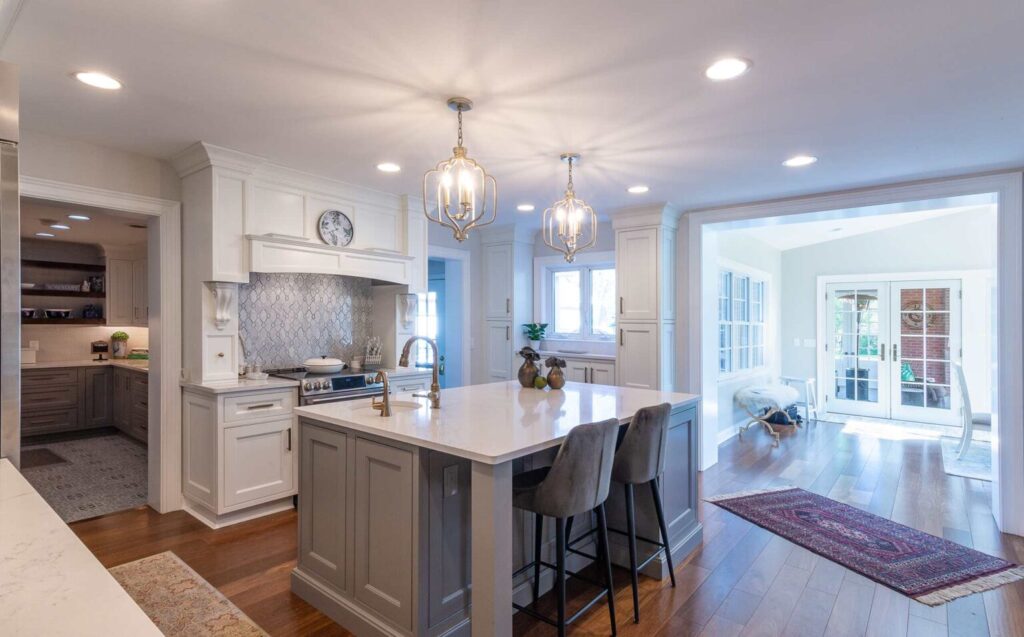
Image source: Google
Embarking on a kitchen remodeling project can be an exciting yet daunting task. One of the most crucial aspects of a successful renovation is setting a realistic budget. Without proper planning and budgeting, your project can quickly spiral out of control, leading to unexpected costs and potential delays. To help you navigate the budgeting process effectively, we've compiled expert advice to guide you through planning your kitchen remodel budget.
1. Assess Your Needs and Set Priorities
Before diving into the budgeting process, it's essential to assess your needs and set priorities for your kitchen remodel. Consider the following:
- Evaluate your current kitchen layout and functionality.
- Determine what aspects of your kitchen are in dire need of an upgrade.
- Identify any specific features or design elements you must have in your new kitchen.
Consider Your Must-Haves vs. Nice-to-Haves
Make a list of must-have features that are non-negotiable for your kitchen remodel. Distinguishing between essential elements and nice-to-have upgrades can help you prioritize your budget accordingly.
2. Establish a Realistic Budget Range
Setting a realistic budget range is crucial to ensure you have a clear understanding of how much you can afford to spend on your kitchen remodeling project. Consider the following factors when determining your budget:
- Research average costs for kitchen remodels in your area.
- Factor in additional expenses such as permits, labor, and design fees.
- Allocate a contingency fund for unexpected costs that may arise during the renovation.
Consult with Professionals
Seek advice from kitchen designers, contractors, or remodeling experts to gain insights into typical costs associated with kitchen remodels. Their expertise can help you establish a realistic budget range based on your needs and desired outcomes.
3. Break Down Your Budget Into Categories
Once you have established a budget range for your kitchen remodel, it's essential to break down your budget into specific categories to allocate funds effectively. Consider the following categories:
- Cabinetry and hardware
- Countertops
- Appliances
- Lighting fixtures
- Flooring
- Backsplash and tile
- Labor and installation costs
Allocate Funds Wisely
Allocate a percentage of your budget to each category based on your priorities and the overall scope of your kitchen remodel. Be prepared to adjust your allocations as needed to accommodate any unexpected costs that may arise during the renovation process.
4. Prioritize Quality Over Quantity
When budgeting for your kitchen remodel, it's important to prioritize quality over quantity to ensure a long-lasting and functional space. Consider the following tips:
- Invest in durable materials that can withstand the wear and tear of daily use.
- Opt for energy-efficient appliances to reduce long-term operating costs.
- Choose timeless design elements that won't go out of style quickly.
Seek Value-Driven Solutions
Look for value-driven solutions that offer a balance between quality and cost-effectiveness. By prioritizing quality investments in key areas of your kitchen, you can create a space that meets your needs while staying within budget.
5. Review and Revise Your Budget Regularly
Throughout the kitchen remodeling process, it's essential to review and revise your budget regularly to ensure you are staying on track with your spending. Consider the following strategies:
- Keep track of expenses and compare them to your initial budget allocations.
- Adjust your budget as needed to accommodate any cost overruns or unexpected expenses.
- Consult with your contractor or designer to discuss any budget changes and seek cost-effective solutions.
Stay Flexible and Adaptable
Be prepared to make adjustments to your budget as the renovation progresses. By staying flexible and adaptable, you can address any unforeseen challenges or changes that may impact your budget without compromising the quality of your kitchen remodel.
6. Conclusion
Planning and budgeting for a kitchen remodeling project require careful consideration and thoughtful decision-making. By following expert advice and implementing strategic budgeting strategies, you can ensure a successful renovation that meets your needs and aligns with your financial goals. Remember to prioritize quality, stay flexible, and seek professional guidance to navigate the budgeting process effectively.